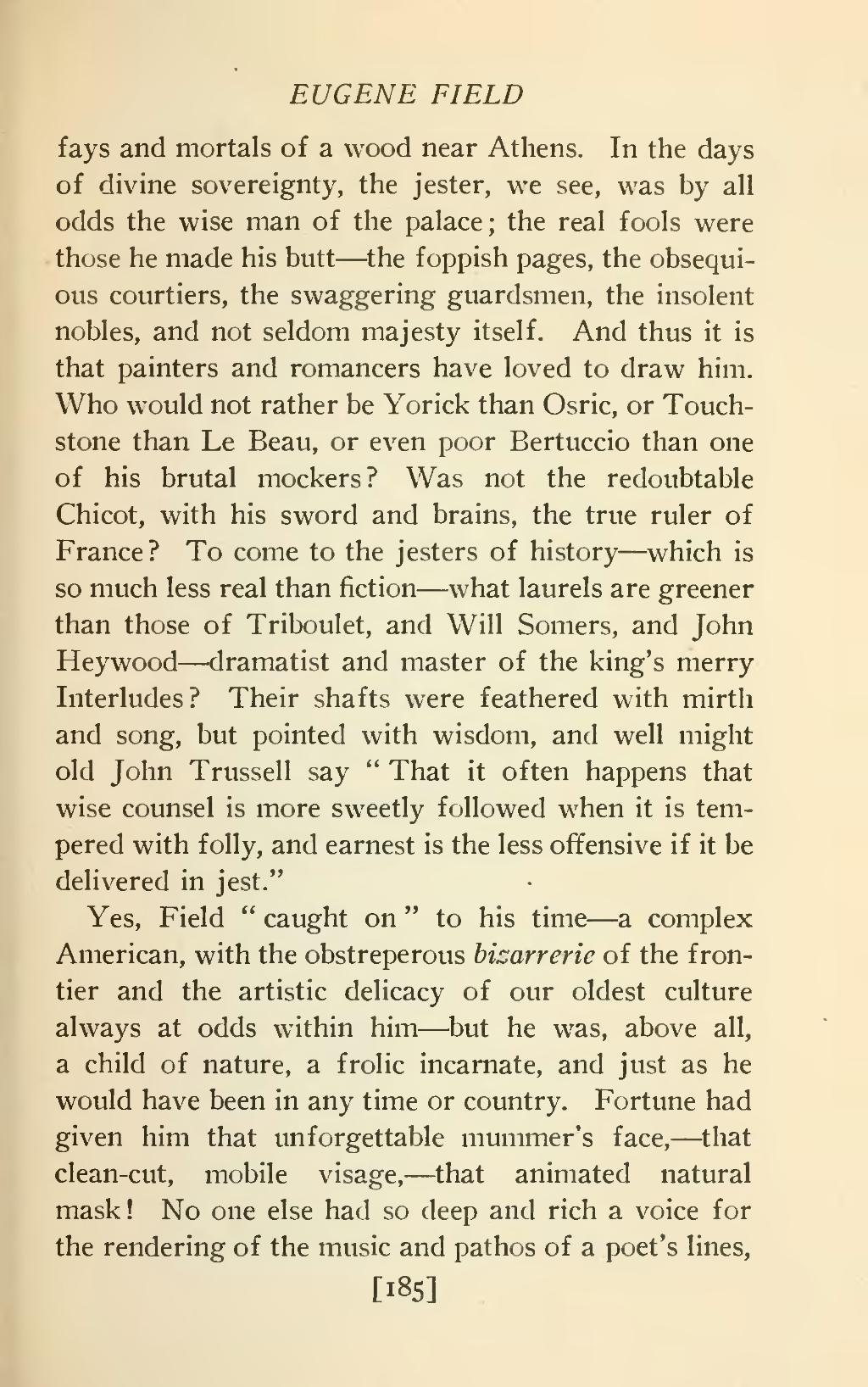EUGENE FIELD
fays and mortals of a wood near Athens. In the days of divine sovereignty, the jester, we see, was by all odds the wise man of the palace; the real fools were those he made his butt—the foppish pages, the obsequious courtiers, the swaggering guardsmen, the insolent nobles, and not seldom majesty itself. And thus it is that painters and romancers have loved to draw him. Who would not rather be Yorick than Osric, or Touchstone than Le Beau, or even poor Bertuccio than one of his brutal mockers? Was not the redoubtable Chicot, with his sword and brains, the true ruler of France? To come to the jesters of history—which is so much less real than fiction—what laurels are greener than those of Triboulet, and Will Somers, and John Heywood—dramatist and master of the king's merry Interludes? Their shafts were feathered with mirth and song, but pointed with wisdom, and well might old John Trussell say "That it often happens that wise counsel is more sweetly followed when it is tempered with folly, and earnest is the less offensive if it be delivered in jest."
Yes, Field "caught on" to his time—a complex American, with the obstreperous bizarrerie of the frontier and the artistic delicacy of our oldest culture always at odds within him—but he was, above all, a child of nature, a frolic incarnate, and just as he would have been in any time or country. Fortune had given him that unforgettable mummer's face,—that clean-cut, mobile visage,—that animated natural mask! No one else had so deep and rich a voice for the rendering of the music and pathos of a poet's lines,
[185]
